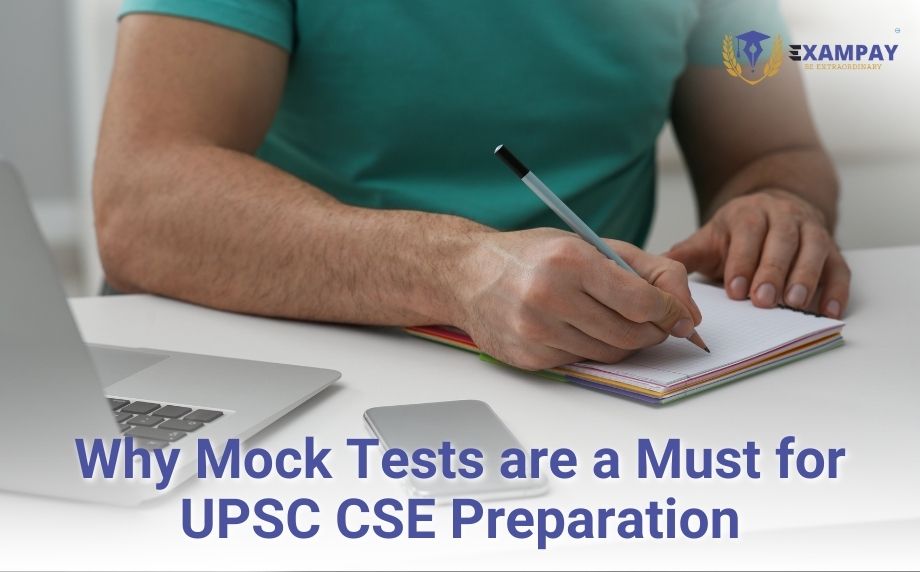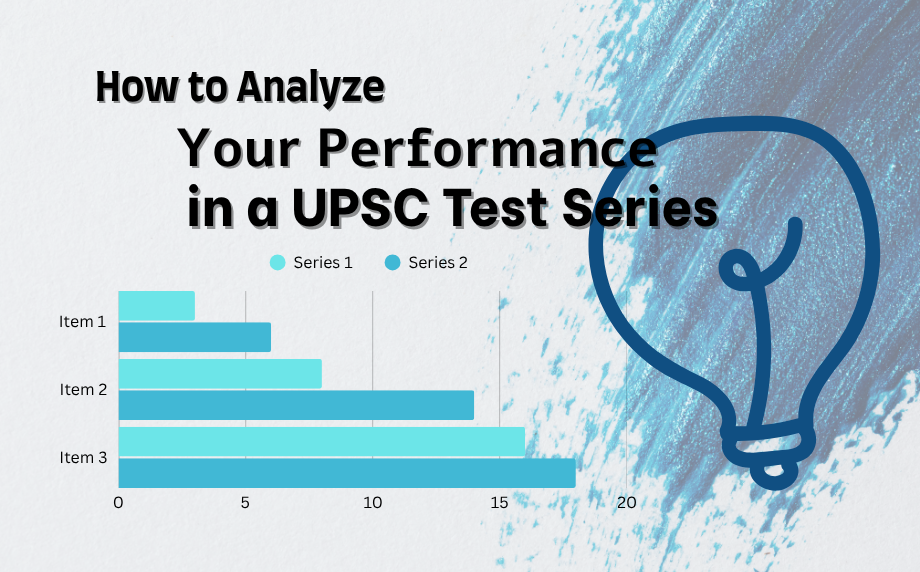UPSC preparation is not a cup of coffee for everyone. This is so not because of the vast syllabus but because of the poor time management skills today’s students have. With countless platforms available to distract them, time management skills are worth more than Gold if you have them.
But how to do it amid a modern lifestyle and so many distractions?
In this article, we’re going to discuss just that. Below you will learn about the 5 pillars which will help you cater a time management routine for your preparation to make sure you win.
Understanding UPSC Preparation Requirement:
UPSC Syllabus is a vast ending ocean and there seems no way out of it. But that is not the reality. UPSC has a set syllabus for all students. However, the subjects include comparatively infinite content than other exams.
Here is the one tip that you must note as a UPSC aspirant. You need 10-12 dedicated months to complete the syllabus to understand the core, UPSC prelims revision, and final UPSC mock test prelims preparations.
Leave any loose end in that and you will pave your way to failure.
Five Pillars of Effective Time Management:
You must have seen toppers making claims of studying 10-12 hours a day. Some might have influenced you to do the same but most of us can’t do that. It’s not possible for many of us. To be noted, that’s not shameful.
While studying more is important for cracking UPSC, taking rest and utilising all your time correctly is even more important.
Time management is not magic. It is possible with proper strategy and by putting in some really good efforts. More correctly, it is the management of your priorities and lifestyle to give direction to your daily activities.
1. Setting SMART Goals:
Setting SMART goals is fundamental to any successful journey. However, don’t confuse the word SMART with some modern-day techy spelling. SMART here has nothing to do with tech. Instead, it’s a philosophical approach to your goals.
S- Specific
M- Measurable
A- Achievable
R- Relevant
T-Time-Bound
Here are a few tips to follow.
– Create a specific goal for your UPSC preparation. Set your accomplishments, responsibilities, and exact steps to achieve them.
– Create a measuring technique to look after your growth process.
– Your goals should be realistic and must complement your daily routine. Unhealthy routines go into the dustbin after a week.
– Think about the big picture. Find the Why of your goals and set them in correlation with your final goal.
– Keep your goals time-bound and stay true to them.
2. Strategic Prioritisation:
The term Strategic Prioritization incubates creating strategies and decision-making. While preparing for the UPSC exam, you must understand that something will always be missed out. There is no point covering all the topics from all the subjects.
We understand how tough it is.
However, with a strategic approach, you can really focus on important topics and leave those who don’t add value to your studies.
But this approach doesn’t only apply to your studies. Our regular lifestyle needs this approach for prioritising our actions. Understand what your goals and their motivation are and design your daily activities according to that.
Remember that some necessary tasks will always be there that have no relation to your goals. But you can’t escape them.
Selecting only the necessary tasks makes you more focused on your goals.
Below are the given steps for strategic prioritisation.
– Identify your strategic goals.
– Create strategies, evaluate, and rank them.
– Select the best and start implementing your prioritised strategy.
– Overcome challenges in the strategic approach.
– Measure the success of your strategy.
3. Structured Study Schedule:
Study smart, not hard. But HOW?
We all have heard the old saying of studying more hours to get more information. But it’s not that simple. Your mind resists too much cluster and forgets most of the things you study.
Continuous unrealistic study routines are no solution. Those are just one-week shows. The right solution is to create a structured study schedule which would include all daily essential activities and give power to your academics.
Benefits of Using Structured Study Schedules:
– Sets achievable goals.
– Breaks down your study sessions
– Design a roadmap to suit your personal goals.
– Allows time for all subjects.
– Studies become less overwhelming.
– No or fewer burnouts.
– Let you relax and do self-care.
Steps to Create a Structured Study Schedule:
– Write short-term & long-term goals.
– List all your subjects and figure out their individual needs.
– Prioritise your list.
– Allot time for non-academic activities.
– Make a daily planner and use study blocks.
– Consider your personality and daily body needs.
– Focus on your learning style.
– Evaluate your work ethic.
– Use off-time as a reward.
– Take short breaks and relax.
– Stick to the schedule honestly.
4. Smart Quality Resources for UPSC Preparation:
UPSC exams are about your grip on the subject. Even missing the slightest information can leave you behind. Here comes the most important question of the time.
How to start preparing for it?
Your most important weapons are your resources. Books, and study materials from coaching are great but there are several other resources that most people ignore.
Using them will make you miles ahead in your journey.
1. Get coaching offline & online classroom programs.
2. Get hands on one or two latest books that target micro-niche topics.
3. Use online free resources.
4. Study previous year’s question papers.
5. Participate in prelims catered workshops.
6. Join telegram channels.
7. Join a library for books, a peaceful environment, and connections.
8. Make friends with people of the same mindset and goal.
9. Create a weekly discussion & debate session for refining your subject.
10. Connect with someone who has already cleared the UPSC CSE.
11. Join an online UPSC mock test series.
12. Online quizzes & flashcards.
13. Use multiple sources to ensure accuracy.
5. Self-Care: The Effective Strategy for Peak Performance:
This is probably the most ignored term when it comes to students doing UPSC preparation. We need to understand that we are not machines. Our mind, body, and spirit need rest and care to perform at peak.
Amidst all the competition, we have forgotten the real meaning of Self-Care.
No, it’s absolutely not lying on your bed and watching Netflix.
Self-care is about recognizing your emotional, mental, and physical needs and taking steps to meet them. It is to understand that you are a different being and fulfilling your needs is also essential for healthy & prosperous living.
Self-care has three aspects:
1. Physical:
– Include physical movement & activities in daily life.
– Spend some time in nature.
– Do regular exercise or yoga.
– Do regular household work.
2. Mental:
– Learn new skills
– Do some creative parts.
– Read some fiction books like poems or stories.
– Practice meditation.
– See the rising sun every day.
– Do positive self-talk.
– Go for psychotherapies if needed.
3. Emotional
– Start journaling.
– Practice mindfulness
– Stay in touch with your friends once in a while.
– Value your emotions.
– Embrace your relationships.
– Practice gratitude
– Set boundaries and say NO.
Incorporating Motivation into Your UPSC Preparation:
Whether you’re appearing for UPSC preparation or the CPL test series, techniques can’t help you alone. You must have a clear ‘WHY‘.
This ‘WHY’ is what we call motivation. This can be anything and it must be personal and intimate to your desires. These reasons only should fuel you to chase your dreams and get some real stuff out of it.
Please recognize that sometimes, even the inner motivation doesn’t work. In those times, you need a spark from outside. It can be anyone from your friends, family, and someone whom you have seen on the billboards.
The world is big enough to give you inspirational figures. Just don’t lose sight.
Conclusion:
Managing time is one skill that will let you go miles ahead in your journey in just a few days. You only need to discipline yourself and be more aware of your daily activities. In this article, we have discussed some core concepts of managing your time or more correctly, prioritising your daily activities for better results.
We at Exampay offer all students appearing for UPSC, CPL test series, Online CAT mock test study materials, test series, and personal guidance. This blog is just a micro-example of how we guide you.
Feel free to connect with us anytime.







